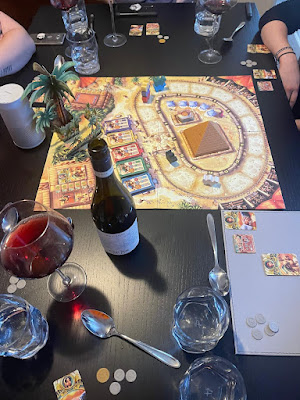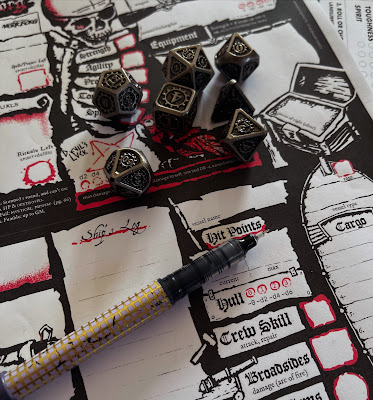The Culture of Defiance
 |
| Regicide - Abrahams et al. |
Skye Jones and Lex Lancaster, University of South Carolina Upstate, wrote that Kawaii culture in Japan was an act of rebellion by young girls against the oppressive culture of "conformity and gendered expectations". Kawaii's emphasis on the hyper-feminine and "cute", which it is a direct translation to, promoted an attitude of vulnerability and childishness that directly contrasted against the societal expectations of responsibility and uniformity in post-war Japan, rising to its peak in the 1970s. In particular the prevailing narrative in Kawaii media is the "magical girl", which is/was distinct from typical Japanese media of the time due to the depiction of everyday girls as "interesting and important people". In this respect Kawaii acted as a strike back at the social narrative that women in positions of prominence are separated from their peers, and are only permitted to have nuance and power if they actively distance themselves from "girlhood" and childish things.
"Kawaii... is most associated with a complete rejection of refinement and beauty, focussing on a childlike attitude of vulnerability, overindulgence, and fantasy." - Jones & Lancaster
At the same time that Kawaii was growing into the powerful youth and feminist movement that it is, in the UK a similar rejection of authority and oppression was kicking its way into the public consciousness; Punk. Much like it's cute sibling on the other side of the world, the youth in the UK embraced Punk and its intentionally unpleasant and viscous aesthetic.
Matthew Worley, writing for the Museum of Youth Culture, concisely summarised Punk as "a negation of pretty much everything: a line drawn in the cultural sand to reboot and rejuvenate youth culture as a site of provocative fun, protest, and imagination". The way in which Kawaii kicked back at oppressive social norms through the hyper-cute, Punk used its vibrant aesthetics and attitudes to take a swing at the muted compliance expected of the British public at the time. Hand in hand, Kawaii and Punk, rejected the status quo and acted in an exaggerated, non-conforming way to undermine the systems of oppression.
I'm not going to fall into the trap that so many columnists have fallen into, and state that something (let's face it, usually right-wing) is the new punk (I'd argue that punk is still the new punk). But I am going to state that in the modern, western world, playing is an act of rebellion.
Can't Spell Punk-tuality Without Punk
(See me about this heading - ed.)
 |
| A punk in the wild |
Never has it been more obvious that when Millennials entered the workforce, that western, capitalist society has been constructed on the premise that childish interests should be abandoned or repressed on becoming an adult. Play for adults traditionally falls into the realms of socially acceptable sports and gambling. There seems very little room for playing video games or those that involve the imagination or little plastic figurines (let's face it, they're toys). I am sure that many readers here will have experiences of telling members of the older generation, or perhaps some more socially acceptable peers, that they spent their weekend pretending to be a wizard fighting a floating one-eyed monster that can shoot laser beams. There is little that can fill that peculiar silence that follows...
However, many millenials entered the workforce still very much attached to their childhoods, which seemed only to be exacerbated by the harsh economic realities of the times. This yearning for the simpler times before gas bills, shopping lists, and mortgages (for those lucky enough to own a house), created almost an entire generation with a meager expendable income keen to channel it into playful pastimes and hobbies. Of course, these traits aren't only held by millenials, but it cannot be ignored that the vast growth in the video games industry in the decade leading up to 2020 and beyond.
Dave Neale, an Affliate of the Centre for Research on Play in Education, Development and Learning (PEDAL) at the University of Cambridge and designer of many board games, writing for the British Psychological Society, noted that there has also been a rise in other "play experiences" for adults as well.
"This is striking because it is at odds with the dominant view in Western culture... that play is largely confined to childhood." - Neale
Neal makes the case that play and playfulness are more central to adult humans than commonly believed. In most other cases animals leave behind playfulness following adolescence. However, humans experience a "persistence of our child-like qualities". The reason for this is posited as an evolutionary benefit. The retention of child-like characteristics like curiosity and "behavioral plasticity... drove our success as a species".
Furthermore, Neal cites Whitebread et al., 2017, in offering an explanation for the retention of playfulness as the psychological benefits similar to those proposed for childhood play. There is a growing body of research exploring the benefits of play in adults and various aspects of adult life. It is becoming more obvious that play is healthy for adults and society as a whole will reap the benefits of a mentally healthy and socially satisfied work-force.
Is It All Just a Worker-Placement Game?
 |
| Stardew Valley - |
Despite this, it is still clear that society is built to ensure constant growth and productivity. The core requirements of late-stage capitalism are fundamentally at odds with the concept of providing adults with play. Although time spent playing is constructive in terms of mental well being, which in turn could produce positive benefits in the work place, it still feels that it is under-valued at best and actively discouraged at worst.
I suspect that the reason for this is that it benefits the worker primarily and the capitalist secondarily. Whereas typically benefits to the worker are largely only encouraged where the business owner is the primary target of the benefit.
Neal does dip his toes into territory that I would consider troubling. In his article for the British Psychological Society, he cites companies such as Google that provide employees with "play areas" to make play a part of working life. The following passage shows how Neal suggests incorporating play into the workplace:
"... Introducing play into the workplace needs to be done with care to be effective. For example, games need to be designed to engage and motivate players, and to accurately reflect workplace objectives. Otherwise, it is possible for employees to use games as escapism, or for games to lead to learning outcomes that are not work-relevant, or even detrimental to work. Play can easily become a distraction, or trivialise serious issues, if it is not introduced in the right way (which may be the thinking behind the traditional play-work dichotomy)."
While I agree with the management of play to reduce the risk of it trivialising serious issues, I find the concept of play only tolerated where it can benefit the employer concering. This feels sinister and potentially weaponises play against the worker to ensure continued compliance. I am particularly curious as to what Neal thinks constitutes learning outcomes that are "detrimental to work". Benefits for workers? Unionisation? Seizing the means of production? And gods forbid workers should use any activity as a form of escapism! It might give them ideas of freedom.
This recommendation of the use of play to ensure productivity, for me, removes the player as the core beneficiary of the activity and further creates a system where play is only tolerated in adults if a tangible productive outcome can be measured and exploited.
Stick It to the Man Meeple
 |
| Final Girl: Terror from Above - Porfirio et al. |
So what do I really mean when I say that play is act of rebellion?
Well, firstly I believe that any activity which puts the benefits of the worker above that of the ruler is a good thing. If playing provides a stronger sense of connection, education, and well being to the players and cannot be exploited to feed into the Constant Growth Machine, it is undeniable an active stand against oppression.
Secondly, as seen in the Kawaii and Punk movements, there is nothing an oppressive society is more intolerant of that the demonised happily adopting the branding put on them. If cute and childlike traits are branded as undesirable, Kawaii took that ore and turned it into iron (pink, sparkly iron with big round eyes). If being loud and unfeminine are traits branded as undesirable, Punk put a safety pin through them and wore them like armour against oppression. So if spending time on playing games is seen as undesirable and unproductive in adults, then playing games in-spite of that becomes rebellious.
Finally, and bringing this firmly back into the realms of table top gaming, if playing is seen as an act of rebellion against a society bent towards endless productivity, then in an increasingly digital world, a world in which large tech companies can stake claim to every aspect of our presence online, playing table top games, away from the digital realm, is the purest form of rebellion.
(I would like to caveat this all with the understanding that many will claim that without capitalism and the digital world, I would not be able to write a post like this online about games produced by the likes of Hasbro. To those people I would like to point them in the direction of the politics and ethics section of their local library where they can read up a bit better on the concepts of socialism).
This is an opinion piece, of course, so I would like to hear what people think about the statement "Play is and Act of Rebellion".





















.jpg)